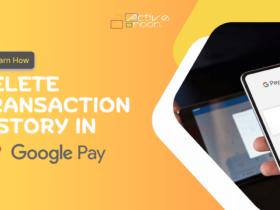Like any business, one needs to track metrics after developing a mobile app too. This can help you identify the areas that need improvement and give a gist of how the audience is perceiving your app. Notably, the Apple App Store and Google Play collect significant metrics about your app. Other than that, many third-party app analytics tools collect metrics data. But is measuring all of them feasible and practical? Not really; such a large quantity of data might be overwhelming and useless. Therefore, one should focus on fewer key metrics that help in measuring the overall performance of your app. This article will give you an overview of some of the most important metrics for the mobile app industry.
App Installs
Installs are the most important metric for mobile app developers to measure. Google defines the install metrics as the “number of times your app was installed.” It also counts the reinstalls, which means if someone has uninstalled the app and reinstalled it, it is counted as an install.
When analysing the metrics over a longer period, you will be able to find certain periods that see the highest number of installs. For example, many apps that fall under categories such as shopping or entertainment see a large number of downloads during a sale or holiday season. This way, you can plan your marketing campaigns more effectively.
App Uninstalls
The uninstall metrics show the number of times the app gets uninstalled. For the developer’s convenience, Google Play provides tentative uninstall numbers. Many third-party apps also provide this number by calculating the silent push notifications sent by users to uninstall the app. If the time of uninstalling is noted and tracked properly, you might be able to discover the various reasons why users are abandoning the app. It could be anything, such as crashes and bugs, slow loading, pop-up ads, etc. Analysing and monitoring this metric helps you improve the overall functionality of your app.
Active Users
The active users’ metrics tell you how many people use your app. One can analyse the daily active users, monthly active users, and yearly active users to notice similar patterns. This way, one can measure engagement on their app in a day, month, and year. This metric’s importance depends a lot on the category of your app. If your app is mostly used for a particular duration, such as a tax filing app, then daily active user measurement will be useful for you. Similarly, a shopping app might want users to spend more time within a day browsing their products and interface.
K-Factor
The mobile app industry uses the K-factor to measure the virality of an app. Virality means word-of-mouth marketing. It implies the number of users that an application gains via an existing user without any extra effort from the publisher. A higher K-factor means more people have become users of your mobile app. It is a key performance indicator that is calculated by calculating the number of invites sent by existing users and the number of successful conversions. It can be done by referrals sent from friends, compelling others to sign up for an app. A conversion occurs when someone completely signs up, installs the app, and becomes a new user by clicking on the referral URL.
User Retention
The app retention rate is the number of users that you were successful in retaining or engaging. There are many different ways to measure the user retention rate of your app. For instance, if your app is a subscription-based platform, you can calculate it by dividing the number of active users at the end of a period by the number of users on the initial day of the period. If yours is not a subscription-based model, you can analyse the retention rate by monitoring the app usage and when and how frequently users visit your app.
Conclusion
Given these points, measuring the mobile app metric has become a priority task. This way, you will find it easier to understand the users’ behaviour and what they perceive of your app. However, the importance of metrics can vary with the categories of your app, and one that is more efficient should be measured first. Lastly, setting a benchmark in the initial stage will help you determine your success status.



















Leave a Reply